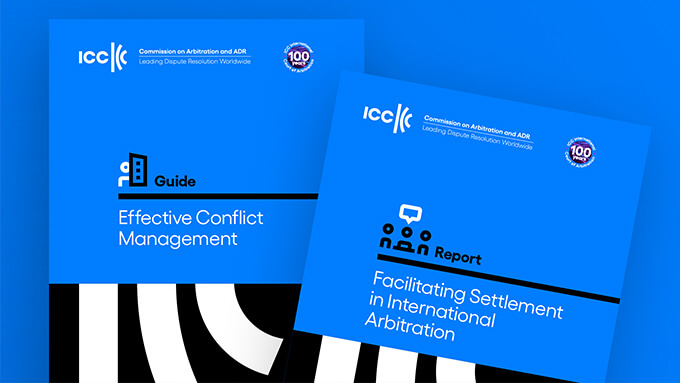Arbitration and Capital Markets Disputes
Introduction
Arbitrability, the determination of whether a specific subject matter can be resolved through arbitration, constitutes a fundamental aspect of arbitration within the scope of international commercial dispute resolution. This concept draws a delicate balance between party autonomy—a fundamental principle of arbitration—and the necessity to safeguard public interests or mandatory legal norms. While arbitration serves as an efficient and flexible mechanism for resolving commercial disputes, its scope is not without limitations. Various jurisdictions deem certain matters, often involving public policy or third-party rights, as "nonarbitrable" to preserve legal principles that extend beyond private agreements.
This newsletter article aims to explore the arbitrability of capital markets-related claims by analyzing different national approaches, with a primary focus on U.S. and Turkish law. The article also reflects on the benefits and criticisms of resolving capital markets disputes through arbitration, shedding light on the evolving nature of this intersection between financial regulation and private dispute resolution.
Understanding Arbitrability and Non-Arbitrability
The concept of arbitrability refers to the question of what types of issues can and cannot be submitted to arbitration. Legislation on arbitration or judicial decisions in many countries specifies that certain categories of disputes or subject matters are not suitable for arbitration, referred to as “nonarbitrable.” In some jurisdictions, this is known as “objective arbitrability” or “arbitrability ratione materiae,” while in others it is called the “nonarbitrability” doctrine[1].
Legal Approaches to Applicable Law in Arbitrability
National laws diverge considerably on what is deemed arbitrable, and this divergence raises questions about which legal system’s view on arbitrability should prevail. The law of the arbitral seat, the law governing the arbitration agreement, and the law of the enforcement forum all present different implications.
Some argue that the law of the arbitral seat should govern arbitrability, as the arbitration is physically and legally rooted there. However, this approach is often rejected because the arbitral seat may have little connection to the dispute. Some authors argue that a tribunal should consider arbitrability according to the law of the probable enforcement state[2]. In practice with respect to enforcement proceedings, most national courts apply their own law to the issue of non-arbitrability. Some suggest applying the substantive law chosen by the parties to govern their arbitration agreement shall also be applicable to the issue of arbitrability. This approach may be considered respectful to party autonomy but may conflict with mandatory laws of other jurisdictions.
Capital Markets Disputes and Arbitration Practice
Capital markets disputes may emerge from a variety of financial relationships, often involving individual investors, brokerage firms, or financial institutions. Capital markets disputes may pertain to allegations of broker misconduct, such as unauthorized trading, excessive trading for commission purposes, failure to supervise, or breach of fiduciary duty. Disputes can also arise with respect to allegations of misleading or incomplete information in the takeover prospectuses, disputes over whether the terms of the bid comply with legal or regulatory requirements, or disagreements about the valuation of shares or the fairness of the offer price[3].
U.S. Approach
The arbitrability of securities claims in the United States has undergone a significant evolution, shaped by the tension between investor protection and the growing acceptance of arbitration as an efficient dispute resolution mechanism. Initially, U.S. courts were skeptical of arbitration in securities matters, particularly due to concerns that arbitration could undermine the protective intent of the Securities Act of 1933 and the Securities Exchange Act of 1934, enacted in the aftermath of the 1929 stock market crash[4].
The pivotal case of Wilko v. Swan (1953)[5] exemplified this cautious approach. The U.S. Supreme Court ruled against enforcing arbitration clauses for claims under the Securities Act of 1933, emphasizing that arbitration clauses could not override investor rights under the 1933 Securities Act.
However, this restrictive stance began to shift with Scherk v. Alberto-Culver Co. (1974)[6] , in which the Court upheld an arbitration agreement between a U.S.-based company and a foreign party, distinguishing it from purely domestic disputes.
A decisive turning point occurred in Shearson/American Express Inc. v. McMahon (1987)[7] , where the Court ruled that claims under the Securities Exchange Act of 1934 were arbitrable. The decision emphasized the Federal Arbitration Act’s strong policy favoring arbitration and dismissed prior doubts about arbitration’s incompatibility with investor protection, effectively overruling Wilko. The Court maintained that arbitration clauses did not waive substantive rights but merely changed the forum for enforcement.
This ruling contributed to institutional reform, leading bodies like FINRA[8] to enhance arbitration procedures. Today, many of U.S. brokerage agreements, as well as many investment advisory contracts, contain clauses mandating that any disputes between the customer and the broker-dealer or investment adviser must be settled through arbitration, typically under the oversight of FINRA Dispute Resolution. FINRA’s Dispute Resolution Statistics highlight the increasing use of arbitration in the resolution of securities related disputes. Accordingly, in 2024, a total of 2312 cases were filed, and 2855 cases were closed. Top 10 controversy disputes in customer arbitrations have consisted of breach of fiduciary with 1173 cases, negligence with 1052 cases, failure to supervise with 978 cases, misrepresentation with 966 cases, breach of contract with 933 cases, suitability with 795 cases, omission of facts with 790 cases, fraud with 627 cases, violation of Blue-Sky Laws with 321 cases, and manipulation with 296 cases[9].
Turkish Legal Framework on Capital Markets and Arbitration
The issue of whether capital markets disputes can be subject to arbitration depends on the parties’ ability to freely manage and resolve the subject matter of the dispute. Under Turkish law, this principle aligns with the criteria established in the Code of Civil Procedure and the International Arbitration Law. Both legal frameworks recognize that disputes where the parties lack the authority to negotiate or settle the matter are not eligible for arbitration.
Under Turkish law, there are three prominent regulatory frameworks concerning arbitration in the capital markets.
If it is mutually agreed in writing by the parties that disputes arising from capital markets activities—excluding stock exchange transactions—between members of the Association of Capital Market Intermediary Institutions of Turkey (“TSPAKB”) or between members and their clients shall be resolved through arbitration under the TSPAKB Arbitration Rules (“TSPAKB Arbitration Rules”), such disputes shall be resolved in accordance with the said rules. Pursuant to Article 32 of the TSPAKB Arbitration Rules, arbitral awards are enforceable once they become final. Arbitral awards may be appealed. In matters not regulated under the TSPAKB Arbitration Rules, the provisions of the Code of Civil Procedure and the International Arbitration Law shall apply.
The Customer Disputes Arbitration Committee of the Turkish Capital Markets Association (“TSPB”) is a committee established within the TSPB pursuant to Article 74(2)(g) of the Capital Markets Law No. 6362 and the Directive on the Customer Disputes Arbitration Committee of the Turkish Capital Markets Association.
This committee addresses disputes involving claims for damages, loss, or compensation arising from capital markets activities (excluding stock exchange transactions) between TSPB members engaging in capital markets activities (such as brokerage firms, banks, portfolio management companies, and investment companies) and their customers, or among TSPB members themselves.
Accordingly, disputes that (i) have already been referred to judicial authorities or consumer arbitration committees, (ii) fall outside the scope of capital markets activities, (iii) concern TSPB members that are subject to bankruptcy, liquidation, or a decision to cease operations entirely, or (iv) involve acts classified as criminal offenses under the law are directly rejected by the secretariat.
At the initial stage within the TSPB, arbitration committees have been established to resolve disputes in the following areas: brokerage activities, portfolio management and collective investment instruments, and leveraged trading transactions.
There is no provision in the relevant legislation that mandates the authority of the arbitration committee to resolve disputes. Additionally, since disputes already referred to judicial authorities or consumer arbitration committees are among those rejected by the secretariat, it is considered that the authority of the arbitration committee to resolve disputes is optional in nature.
Under Article 70/1 of the Capital Markets Law No. 6362 and the Borsa Istanbul A.Ş. (“Borsa Istanbul”) Directive on the Operation and Procedures of the Dispute Resolution Committees (“BIST Directive”), Borsa Istanbul is authorized to resolve disputes arising from stock exchange transactions between investment institutions authorized to trade on the exchange, either among themselves or between such institutions and their clients.
Accordingly, for the dispute to fall within the scope of this mechanism, it must arise between entities authorized to trade on the exchange or between such entities and their clients and relate specifically to transactions executed on the exchange.
Under the BIST Directive, a stock exchange transaction is defined as the transmission of buy or sell orders to the exchange, the matching of such orders in accordance with exchange rules, and the fulfillment of the obligations arising from the resulting transactions within the timeframes and methods stipulated in the regulations of the exchange and the relevant clearing and custody institutions.
Article 5 of the BIST Directive provides that the parties retain the right to apply to judicial authorities or arbitration for the resolution of the dispute. Furthermore, if the complaint is withdrawn, if the parties reach a settlement, or if arbitration or court proceedings are initiated, the case is dismissed from the committee's agenda.
The decision regarding the dispute is rendered by the Board of Directors of Borsa Istanbul. If the amount specified in the decision exceeds a certain threshold, it is possible to appeal the decision before the Capital Markets Board. The Capital Markets Board’s decision on the dispute is final, though, pursuant to Article 15 of the BIST Directive, an administrative lawsuit may be filed against the Board’s decision.
Conclusion
The arbitrability of capital markets-related claims exemplifies the complex relationship between private autonomy and regulatory oversight. As the global financial system becomes increasingly sophisticated and interconnected, the role of arbitration in resolving capital markets disputes continues to expand.
The efficiency and cost-effectiveness of arbitration make it an attractive alternative to litigation in capital markets disputes. Arbitration proceedings are typically faster and less burdensome procedurally, enabling the resolution of complex financial issues without prolonged judicial delays. Arbitrators, often selected for their expertise in finance or law, can deliver informed decisions tailored to the specificities of each case.
- Gary B. Born: International Commercial Arbitration, Kluwer Law International, 2021, p. 1029.
- Fouchard Gaillard Goldman, International Commercial Arbitration, Kluwer Law International B.V., 1999, p. 330
- Hans van Houtte:'Arbitration Involving Securities Transactions', in William W. Park (ed), Arbitration International, (© The Author(s); Oxford University Press 1996, Volume 12, Issue 4), p. 405.
- Barraclough, A., & Waincymer, J. M., “Mandatory rules of law in international of commercial arbitration”, Melbourne Journal of International Law, 6(2), 2005, p. 240.
- 346 U.S. 427 (1953).
- 417 US. 506 (1974).
- 482 U. S. 220 (1987).
- On July 30, 2007, with the SEC's approval, the non-profit Financial Industry Regulatory Authority (FINRA) was born. FINRA is a self-regulatory organization for U.S. broker-dealers that is responsible under federal law for supervising its member firms
- https://www.finra.org/arbitration-mediation/dispute-resolution-statistics#arbitrationstats
All rights of this article are reserved. This article may not be used, reproduced, copied, published, distributed, or otherwise disseminated without quotation or Erdem & Erdem Law Firm's written consent. Any content created without citing the resource or Erdem & Erdem Law Firm’s written consent is regularly tracked, and legal action will be taken in case of violation.
Other Contents

Emergency arbitration addresses the need for interim protection before the arbitral tribunal is constituted in institutional arbitrations. Arbitral institutions establish short timeframes to ensure parties can obtain interim relief quickly. For example, the International Chamber of Commerce (“ICC”) requires that the emergency...

International arbitration remains the preferred mechanism for resolving complex cross-border disputes. Yet despite its advantages—neutrality, enforceability, flexibility—arbitration is frequently criticized for being too slow, too expensive, and too procedurally heavy. Often, parties proceed through hearings and...

For arbitral awards rendered in international commercial arbitration to produce legal effects in foreign jurisdictions, they must be subjected to proceedings for “recognition” and “enforcement.” This process is governed by the New York Convention as well as by the provisions of the Law on Private International Law...

The recognition, enforcement, and annulment of foreign court and arbitral awards in Türkiye are processes in which public policy emerges as one of the most critical criteria for review, both in theory and in practice. The Court of Cassation decisions determine the direction of case law regarding the scope and...

As is well known, the action for annulment of objection is a special type of lawsuit regulated under Article 67 of the Turkish Execution and Bankruptcy Law No. 2004 (“EBL”). The primary objective of this action is to nullify a debtor’s objection to execution proceedings. Despite its procedural function of facilitating...

On 16 December 2024, the London Court of International Arbitration (“LCIA”) released its third batch of challenge decisions covering the period from 22 July 2017 to 31 December 2022. The LCIA has also issued a detailed commentary that identifies key legal themes and analytical trends, offering practitioners...

The International Chamber of Commerce (“ICC”) has published its report on the dispute resolution statistics for 2023 (“Report”) , shedding light on the evolving landscape of international arbitration...

Syndicated loans undoubtedly hold a significant position among global financing models. In 2023 alone, 3,655 syndicated loans were provided to companies in the US, with their total value reaching USD 2.4 trillion...

Preliminary attachment refers to the temporary seizure of a debtor's assets to secure a creditor's claim. While it serves as a vital instrument for safeguarding the rights of creditors, it is subject to specific and stringent conditions under Turkish law to prevent any potential misuse...

One of the most important reasons for parties to choose arbitration is the opportunity to freely choose their arbitrators. This freedom granted to the parties also distinguishes arbitration from proceedings before state courts, where the parties are deprived of the power to determine the judges who will conduct the...

The 6th Civil Chamber of the Court of Cassation ruled on October 12, 2022, that national courts have jurisdiction over objections to provisional measures in international arbitration disputes...

The declaration of intent to resolve disputes through arbitration is the fundamental constituent element of an arbitration agreement. To speak of a valid arbitration agreement, the parties' intention to arbitrate must emerge in a way that leaves no room for dispute...

In the wake of the evolving dynamics of commercial transactions, the Netherlands Arbitration Institute Foundation (NAI) announced new arbitration rules . 2024 NAI Arbitration Rules are in force as of 1 March 2024 and will be applicable on proceedings filed on or after this date...

With the global shift to online activities, domain names play a crucial role in identifying businesses. It is more common than ever for a domain name to be registered that is confusingly similar to a trademark or service mark...

The ICC Commission on Arbitration and ADR (“Commission”) published a new guide and report with the aim to increase awareness on alternative dispute resolution (“ADR”) mechanisms to prevent disputes and strengthen the relationship between all stakeholders.The Guide on Effective Conflict Management...

Mergers and Acquisitions (“M&A”) are restructuring of companies or assets through various types of financial transactions, such as mergers, acquisitions, purchase of assets, or management acquisitions. This Newsletter article covers M&A disputes being solved before arbitral tribunals.

In the context of arbitration practice, the principle of revision au fond means that the courts can not examine the merits of a dispute when reviewing an arbitral award. This principle is most commonly encountered in set aside and enforcement proceedings. An arbitral award is evidence of the parties’ willingness...

Under Turkish law, parties may agree on the settlement of disputes that have arisen or may arise, regarding the rights that they can freely dispose of, by arbitration. However, disputes which are not subject to the will of parties, such as the disputes relating to in rem rights of immovables, bankruptcy law...

On 4 September 2020, a research project “Does a Right to a Physical Hearing Exist in International Arbitration?” was launched by an International Council for Commercial Arbitration (“ICCA”) taskforce. Due to the Covid-19 pandemic, many arbitration hearings were held online. Many institutional rules...

Dubai International Arbitration Center amended its Arbitration Rules on 25 February 2022. The 2022 Arbitration Rules were published on 2 March 2022 and came into effect on 21 March 2022. The Rules will be applied to arbitrations that are filed after 21 March 2022; unless parties agree otherwise...

In the aftermath of the Achmea decision, controversies on intra-EU arbitrations continue. Most recently, the Paris Court of Appeal has annulled two arbitral awards rendered against Poland. Meanwhile, the Higher Regional Court of Berlin has refused to declare that an Irish investor’s ICSID claim...


Under Turkish law, the legal remedy that can be applied against arbitral awards is an annulment action. Law on International Arbitration No. 4686 (“IAL”) finds its application area in arbitration proceedings where Turkey is the place of arbitration...

It is well known that following a decision of the Court of Justice of the European Union, problems arose related to arbitration of intra-EU disputes, and particularly arbitration under the Energy Charter Treaty...

Arbitration in corporate law contains controversial elements in many respects, especially the issue of arbitrability. Even in legal systems where these disputes are considered to be arbitrable, uncertainties remain on whether an arbitration clause can be included in the articles of...





Arbitration has benifited from a great increase in the use of technology which has directly effected the conduct of proceedings. More particularly, with digitalization, the way that we conduct arbitration proceedings has been changed to reflect the current needs of parties, with an aim of increasing time...

































































